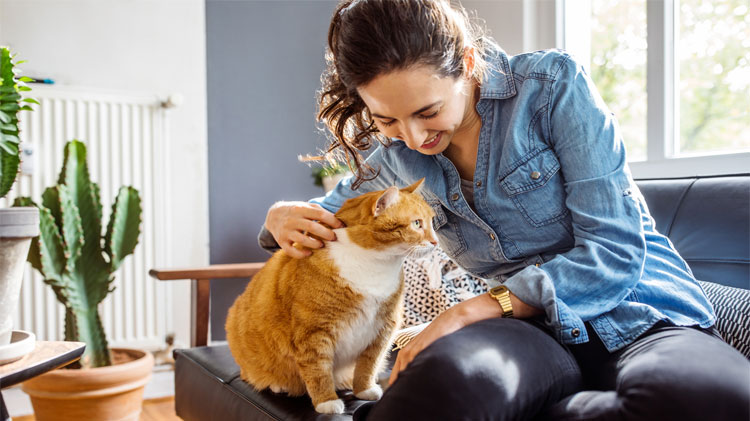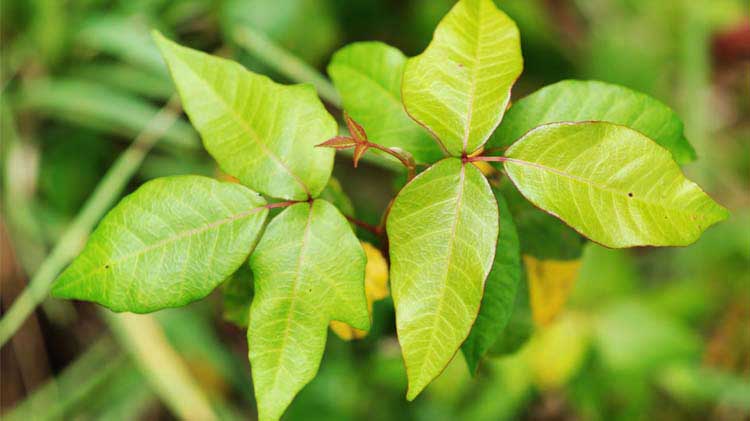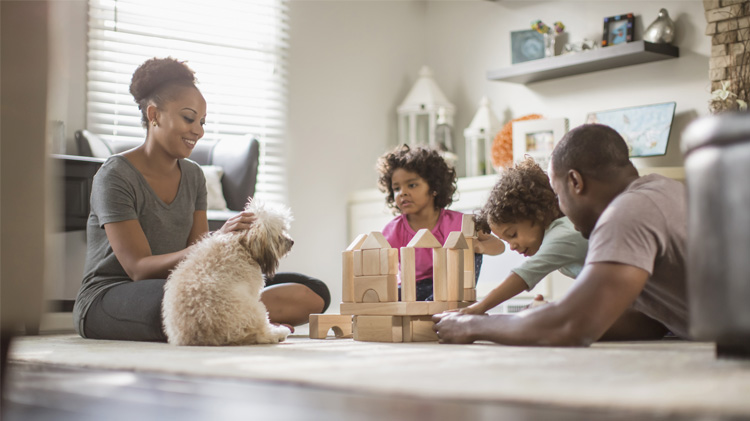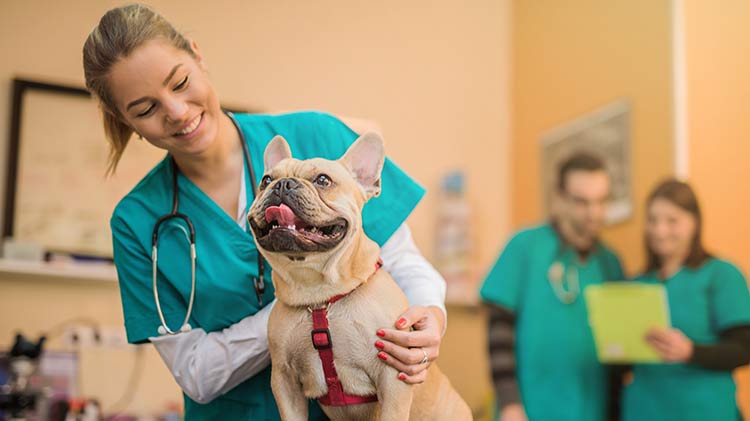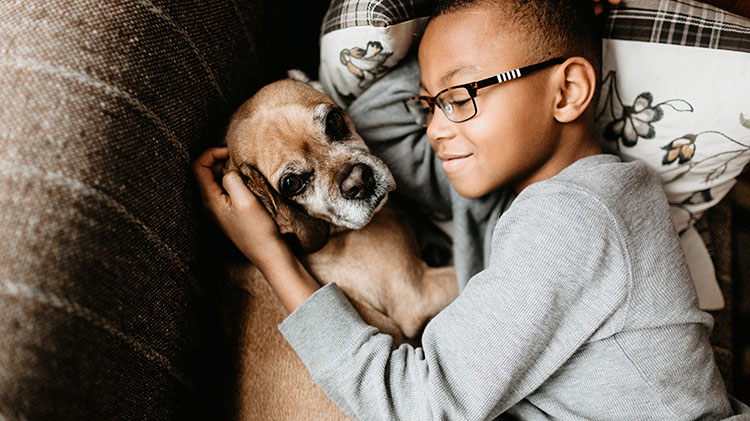Pet-friendly house plants
Learn about some pet-friendly plants, as well as poisonous house plants to avoid, to help keep your cat or dog safe and healthy.
Indoor plants provide countless benefits, from purifying the air to improving your mood, but not all house plants are safe for dogs and cats. It goes without saying that house plants aren’t meant to be eaten, but our pets don’t always know what’s best for them.
As a responsible pet parent, keeping your pet safe should always be a top priority. Whether your pet is prone to mischief or perfectly well-behaved, it’s better to be safe than sorry. Learn which plants are pet friendly, which ones are toxic and how to recognize the signs that your pet may have eaten something harmful.
Dog and cat-friendly house plants
- Spider plant. A great beginner plant that's also dog and cat friendly. This hardy, low-maintenance plant is perfect for decorating a shelf, bookcase or hanging in a hallway.
- Prayer plant. Looking to add a bold pattern to your home? This pet-safe house plant can enrich your space with its decorative leaves.
- Pony-tail palm. This succulent thrives indoors and would make a beautiful addition to your collection of pet-safe house plants.
- Staghorn fern. This functional and unique plant can help add some decoration to an empty wall or shelf.
- Wax plant. Bring a tropical vibe into your home with this unique house plant. It’s one of the easiest plants to take care of and is non-toxic to dogs and cats.
Poisonous house plants
Besides being mindful of pet-safe plants, it's also important to be aware of those that are toxic to pets. Toxic house plants come in all shapes and sizes, some of which may surprise you.
- Lilies. A seasonal favorite in spring, lilies are toxic when ingested by pets and can cause kidney damage, kidney failure and even death. Consider other pet-friendly indoor plants like a gerbera daisy or petunia.
- Sago Palm. Despite its air-purifying benefits, this plant can be harmful to your pet. All parts of the sago palm, including the leaves, roots and seeds, are toxic to cats and dogs.
- Tulips. While this flower is beautiful, the bulb is highly toxic to pets and can cause kidney damage.
- Daffodil. This plant is commonly used in bouquets, but you may want to skip it the next time you decorate your home with flowers. Daffodils can cause vomiting, diarrhea, hypertension and drooling if ingested by your pet.
- Foxglove. This dramatic and striking plant may be nice to look at, but it can seriously damage your pet's heart. All parts of the foxglove plant are poisonous, including the water from the vase.
- Aloe Vera. Although aloe vera has many medicinal uses for humans, it's not a pet-safe option for your home. In fact, it can cause vomiting and diarrhea when ingested by pets.
- Oleander. This popular garden plant can trigger a severe reaction in cats and dogs including dehydration, shock, lethargy, seizures and tremors.
- Dumb Cane. While this tropical house plant is a popular option, it can cause a slew of medical issues for pets including swelling, drooling and vomiting.
What you may think is a safe option may not actually be the case for your dog or cat. If you're unsure which plants are pet friendly, do your research or talk to your veterinarian.
Signs of toxic plant ingestion in cats and dogs
Any type of foreign body ingestion shouldn’t be taken lightly when it comes to your cat or dog. Also, depending on the size or type of the plant, your pet's reaction might differ. If you believe your pet has ingested any part of a plant, please seek the medical care of your veterinarian.
Here are signs of toxic plant ingestion in pets, which can range from mild to severe:
- Irritation
- Swelling
- Nausea
- Vomiting
- Diarrhea
- Weakness
- Trouble breathing
- Loss of consciousness
- Tremors or seizures
In addition to knowing the signs of toxic plant ingestion, learn more about how to identify poisonous plants in your home, backyard and beyond.
Responsible pet ownership
As a responsible pet owner, prioritize your pet’s safety and consider their individual needs. Before adding a new plant to your home, do your research and consult with your veterinarian or gardener.
Of course, even with the best-laid plans, life doesn’t always go as expected. With pet medical insurance, you can help prepare for surprises before they happen. That way, if your pet eats something they shouldn’t (whether plant-based or otherwise), your pet insurance coverage can help.
Discover how a Trupanion pet insurance policy can be there for your pet throughout their lifetime.
